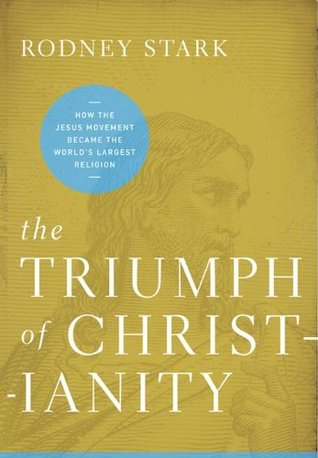More on this book
Community
Kindle Notes & Highlights
by
Rodney Stark
Read between
May 21 - August 29, 2018
The Jews in the West and the Zoroastrians in the East rejected these ideas about the gods, opting instead for a morally demanding monotheism.
most often the temples served as eating clubs.
And what of the gods? For all their faults they were very appealing because they were so human!
In contrast to other pagan societies, the temples were not closed to ordinary Romans, nor were the idols hidden from public view.
Seven major gods were established prior to the founding of the Roman Republic, headed by Jupiter (also called Jove) who was regarded as the supreme father of the gods and eventually equated with Zeus.
New faiths continued to arrive from the East and Egypt—the so-called Oriental faiths.
All were “pagan” faiths, but with some very significant differences.
each was intensely focused on one god,
new to paganism: cong...
This highlight has been truncated due to consecutive passage length restrictions.
Bacchanalians
Cybelene
Isis,
Mithraism
100 CE
The essential question is, why were the Oriental faiths so popular?
the Oriental religions succeeded because they “gave greater satisfaction.”
First,
“they appealed more strongly to the senses,”
emotion...
This highlight has been truncated due to consecutive passage length restrictions.
new faiths stressed celebration, joy, ecstasy, and passion.
the chief emotional ingredient lacking in the traditional Roman faiths was love.
second
their stress on individualism and virtue. The
traditional gods of Rome were “primarily gods of the state,” ...
This highlight has been truncated due to consecutive passage length restrictions.
but were instead directed toward the individual’s spiritual life and stressed individual morality, offering various means of atonement—
Thirdly,
traditional Roman religions had no scriptures.
In contrast, the Oriental faiths were religions of the book:
Moreover, the new faiths presented a far more rational portrait of the gods—
they did regard theirs as a supreme God.
Compared with the ancient creeds, they appear to have offered greater beauty of ritual, greater truth of doctrine and a far superior morality.... The worship of the Roman gods was a civic duty, the worship of the foreign gods the expression of personal belief.”31
Oriental religions offered women substantial religious opportunities as well as far greater security and status within the family.
speaking in tongues,
Above all else was their capacity to mobilize a lay following by involving
people in congregations, in active communitie...
This highlight has been truncated due to consecutive passage length restrictions.
Roman paganism offered very little in the wa...
This highlight has been truncated due to consecutive passage length restrictions.
the Roman gods had only clients and festivals, not members and regular services.
Like the Jews, the followers of the Oriental faiths made their religious group the focus of their social life.
Of the seventy-six emperors who took the throne from the reign of Augustus to the ascension of Constantine, only nineteen died natural deaths.
Seven were killed in battle, forty-two were murdered, two others probably were murdered, and six were forced to commit suicide.
all because of the “sin” of congregationalism.
The great Roman philosopher and statesman
Lucius Annaeus Seneca (4 BCE –65 CE ) denounced Jews as an “accursed race”
Cornelius Tacitus (56–117 CE ) railed against the Jews because they “despise the gods,”
that the major sin of the Jews was to be a strong, well-organized, separated community, in addition to which the Jews sought converts, as did all of the Oriental faiths.
When Isis came west, she soon shed her Egyptian role as responsible for the rise and fall of the Nile. Instead, she began to be hailed as the Goddess Supreme, the Queen of the Sky, the Mother of the Stars, and often was referred to as the savior goddess.
She could be recognized as a supreme god, but not as an only god because the existence of a whole pantheon of other gods,
Isis’s “biography” took place entirely within the invisible world of the gods.
ON CHRISTMAS EVE, JUDAISM was the only fully developed monotheism available in the Roman West.
But much too little has been made of the extent to which the Oriental religions also prepared the way: the geography of the spread of early Christianity through the empire closely followed the geography of the spread of temples devoted to Cybele and to Isis.77


